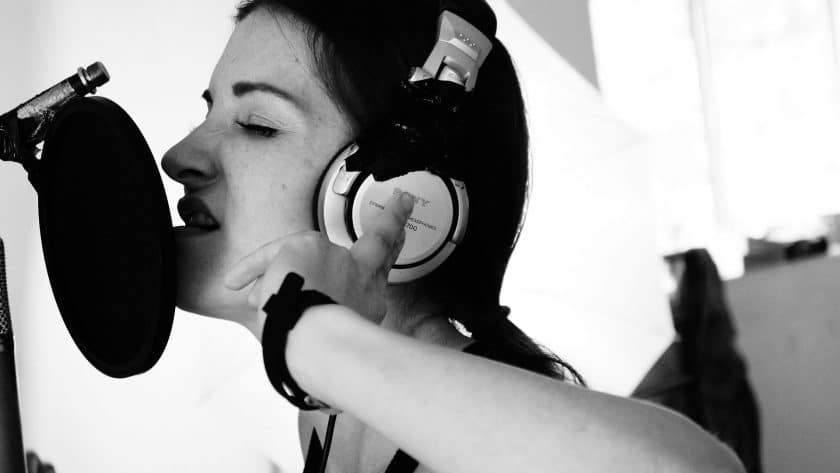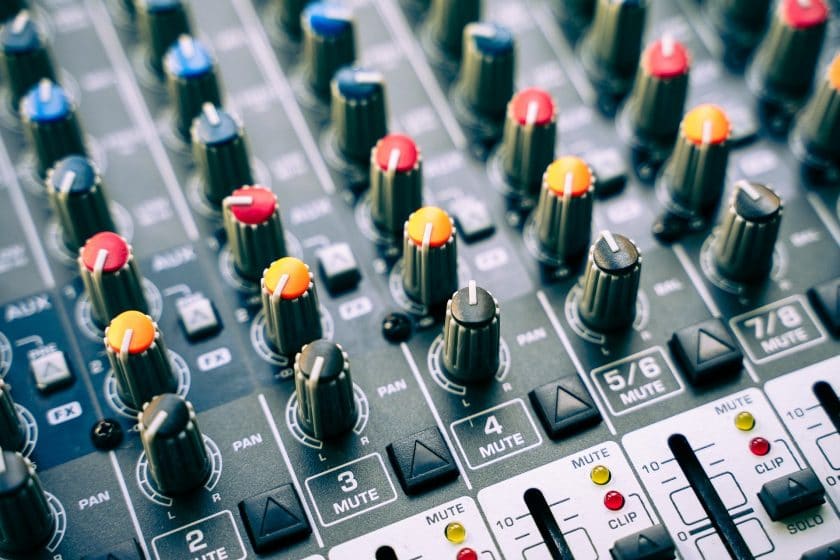Whether you’re a singer or musician, the Southampton and Hampshire recording studio experience is second to none. Knowing what to expect from your first time in the studio can save you valuable time and money and preparation will give you a better product.
Are you planning to lay down some tracks? Congratulations, this is an exciting first step in your journey as a recording artist. But you may be wondering what the process is going to be like.
We’ve put together some helpful hints on how to prepare and what to expect at a professional music studio in Southampton. Read on to find out everything you need to know before that exciting first session.
Recording Studio Experience in Southampton, Hampshire
As a singer, musician or producer, it’s important to make the most of the studio time you’ve booked in Southampton, or further afield in Hampshire. This isn’t the place for practice, it’s the place to finally record those well-rehearsed tracks you’ve perfected over time.
So taking control, communicating and planning ahead of the day will give you the best chance of preparing yourself efficiently and will increase the chance of getting the recording you desire.
How does recording a song work?
You’ll need to book a session or several sessions. These are usually broken down into either one-hour experiences, half-day sessions or full-day sessions. The type of studio and time-frame you need will depend on your project, and how many people are involved. The studio will be able to advise you on this. If possible pop in for a quick visit and chat with the producer and ask for samples of their sound, or see if they run studio tours. Doing this will help you to know what to expect once you get into that specific studio
What to expect from your first time in the studio
Speak to the studio and establish whether your session comes with an engineer or not. Some big studios will just rent out the studio and you will have to arrange an engineer in addition.
The producer will run the vast majority of studios, but it’s always worth double-checking. Establish rates, times, availability and whether the equipment is supplied or not. You may also have the option to hire songwriting services and a development package.
What should I expect at a recording studio?.
On arrival, you’ll be greeted at reception, then taken to the studio you’ve booked. You’ll then have a chat with the engineer/producer. You must be organised and know what you want to achieve in your studio session and then translate that to the engineer otherwise you will leave the producer guessing and the end product may not sound how you wanted it to.
What do I need to know before recording a song in Southampton?
Here’s a checklist of what you need to know and do before getting started.
- Make sure you have rehearsed your songs to perfection. The recording studio is not the place to rehearse as you’ll eat into valuable studio time. That includes practising together if using backing musicians or if recording as part of a band.
- Practice singing or playing your song with a metronome to avoid timing issues, especially if you are used to singing along live with instruments.
- Vocalists should practice warm-up and breathing techniques as studio microphones will pick up all nuances no matter how subtle. Guitarists should practice avoiding finger sliding squeak noises.
- Get some mic practice in. While much can be sorted in the editing process, you’ll have a better end product if you learn how to avoid heavy breathing as well as popping and sibilant sounds on the mic.
Dos and don’ts in a recording studio
Do make sure all of your instruments are set up properly and you have spares if you need them.
Do tell the music studio exactly what you want from them. You’re paying for their time so make sure you make the most of it.
Do Let the engineer direct. They are likely to have ideas and experience that will help improve the songs, which you might have not considered. Maintain your vision, but let them add to it and make suggestions.
Do make sure you’re ready to work hard and focus on what you’re doing.
Do perform. It’s true that you won’t be seen, but it adds emotion and energy to your vocals. Check out some famous names recording in the video below, and watch how they do it.
Don’t forget to pack drinks, snacks and some light meals in a cool bag.
Don’t have any drinks near equipment that might spill. Use cups and flasks with lids.
Don’t be starry. Work hard, expect a long day and always be appreciative of those who’re working with you, be they backing musicians, engineers or producers.
What to do after recording a song
So you’ve recorded your vocals and instrumentals, what happens now?
The track will go through a three-step process.
#1 Editing
Once you’ve got all of your music recorded, it’s then edited. This can be a tedious process, and since you’re probably paying by the hour it’s best to make sure it’s done quickly. Here’s an inside tip – many people like to ‘fix’ parts of the music after they’ve happened; sometimes it’s quicker just to sing it again, which will save you money.
#2 Mixing
This is where the song is tested via different outputs to check the quality of sound is consistent. It’s sometimes wise to take the finished product home and see how you feel about it outside of the studio, then bring it back if there’s anything you want to change.
#3 Mastering
This is the final stage once your music has been edited and mixed – and it’s one of the most crucial processes. The order of songs will be thought-out and audio levels, EQ and compression will be worked on until it’s just right.
But remember, the most important thing is to enjoy yourself – especially if you’ve booked your first recording studio experience. It’s an exciting and rewarding process, and by the end of it, you’ll have a song, track, album or EP you can make available to fans. Be sure to distribute it and plug it as much as possible. Who knows where that first recording studio experience in Southampton might lead!
Related Questions
What should I wear to a recording studio?
Comfortable, loose-fitting clothes are best. Don’t wear anything that restricts you singing and playing. But, also wear something that makes you feel the part. You may want to dress to fit your genre, style and vibe as it can add an edge to your performance. Dress as the artist you want to be!
How can I make my voice sound better when recording?
Practise vocal technique every day ahead of your studio session and ideally get some vocal coaching (your studio will be able to recommend someone if needs be). Warm-up fully before beginning and avoid dairy products that create mucus. Instead drink plenty of water, throat coat or liquorice tea.
How can I get into a recording studio?
Contact a studio near you by phone or email, or check their website for a booking form. You can discuss your needs and book in some recording time, including mixing, mastering and development. You can also pop into many studios and chat with the person at reception.

